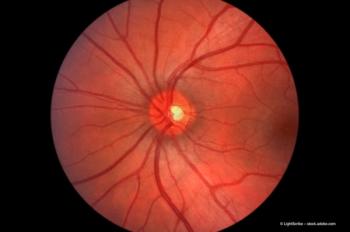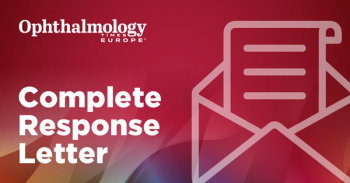
Integrated study: Phase 3 PEACHTREE, AZALEA indicate significant BCVA gains, CST reduction
The Phase 3 integrated PEACHTREE and AZALEA study data revealed strong safety and efficacy for triamcinolone acetonide via suprachoirodal injection.
At ARVO 2022, Dr Steven Yeh reviews the results of the Phase 3 PEACHTREE and AZALEA integrated study, revealing significant BCVA gains and low adverse event incidence in the Xipere (triamcinolone acetonide injectable suspension, Bausch + Lomb) arm.
Dr Yeh is a professor of ophthalmology and the Director of Retinal Disease and Uveitis at the Stanley M. Truhlsen Eye Institute at the University of Nebraska Medical Centre.
Video transcript
This integrated analysis looked at patients who received macular oedema for noninfectious uveitis. In PEACHTREE specifically, we treated patients with macular oedema due to noninfectious uveitis. And the AZALEA study looks specifically at safety in this cohort of patients.
And in this study, we looked at the efficacy signals as well as the safety signals, integrating these two cohorts of patients. What we found is that patients who received Xipere showed a significant best corrected visual acuity gain of up to two to three lines of visual acuity improvement at the week 24 time point when we combined the clinical trial data.
This is also reflected in reduction of macular oedema, specifically found that patients who received Xipere showed approximately 150 micron reduction in central subfield thickness, and this was sustained for the duration of the trial.
The other aspect that's very important related to this new technique for the treatment of posterior segment conditions is safety. What we found is that intraocular pressure rates were very favourable. In the Xipere arm specifically, about one in eight individuals showed elevation of intraocular pressure, compared to the slightly higher one and seven of individuals in the patients who were in the sham control arm.
When we broke this down further to the patients in the sham arm who received rescue therapy, we found that 25% of individuals who receive local intravitreal therapies showed an elevation of intraocular pressure, which is really compelling when we think about Xipere as a therapy that's nuanced, and a new technique for the treatment of macular oedema due to noninfectious uveitis.
Other adverse events were very well tolerated, and we're very excited about both the efficacy outcomes, as well as the safety variables as well. Again, visual acuity is very important to all of our patients and again, is related to the quality of life and what patients care about most. This is a new drug delivery technique that we're really looking forward to not only for uveitis, but other posterior segment conditions in the future.
Note: This transcript has been lightly edited for clarity.
Newsletter
Get the essential updates shaping the future of pharma manufacturing and compliance—subscribe today to Pharmaceutical Technology and never miss a breakthrough.




























